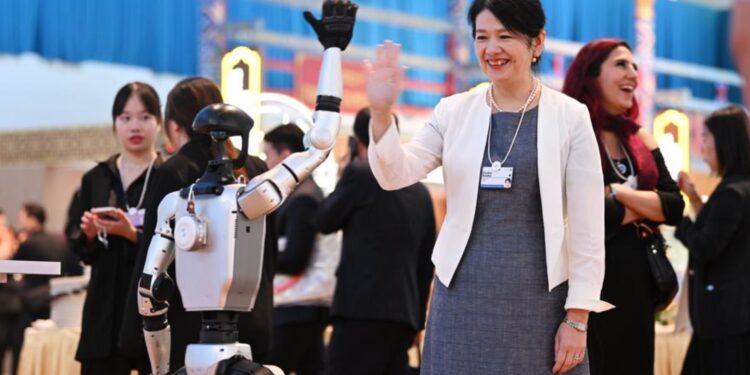The World Economic Forum in Davos this year unequivocally highlighted Artificial Intelligence (AI) as the singular force reshaping global industries, moving beyond theoretical discussions to tangible, widespread implementation. From the intricate algorithms driving strategic decisions to the robotic arms meticulously assembling products on factory floors, AI is catalyzing an unprecedented industrial revolution.
Discussions at the Forum underscored that AI is no longer just an efficiency tool but a fundamental driver of innovation, sustainability, and growth across diverse sectors. In manufacturing, the impact is particularly profound. Traditional, often dusty, assembly lines are being transformed into clean, intelligent environments. Companies are leveraging AI for predictive maintenance, anticipating equipment failures before they occur and drastically reducing downtime. Smart lines, quadrupling traditional efficiency, are becoming the norm, with 5G-connected robotic arms transporting materials and stacking components with precision.
The shift extends far beyond the factory floor. AI-powered algorithms are optimizing supply chains, enabling real-time material flow visibility, and automating replenishment orders, significantly cutting costs and enhancing agility. In sectors like healthcare, AI is aiding in earlier disease detection and personalized treatment plans, while in finance, it’s detecting fraud and automating transactions with remarkable speed.
Experts at Davos emphasized the emergence of “agentic AI” systems, which can act autonomously, making decisions and executing complex tasks without constant human input. This signifies a move from “Tool AI” to self-governing systems that will further streamline operations and unlock significant efficiency gains, particularly in industries with high labor costs.
However, the transformative power of AI comes with critical considerations. The Forum emphasized the need for responsible AI implementation, addressing concerns around ethical use, data privacy, and potential job displacement. The consensus was clear: AI should augment human capabilities, not entirely replace them, and its deployment must be accompanied by robust frameworks for data governance and transparency.
As industries race to integrate AI, the message from Davos is resounding: those who pivot quickly from early investment to practical application, embracing collaborative ecosystems and responsible adoption, will not only withstand the disruption but thrive in this AI-driven future. The convergence of AI with other frontier technologies like IoT, 5G, and digital twins promises an even more integrated and intelligent industrial landscape in the years to come.










![Online Scam Cases Continue to Rise Despite Crackdowns on Foreign Fraud Networks [Myanmar] Online Scam Cases Continue to Rise Despite Crackdowns on Foreign Fraud Networks [Myanmar]](https://sumtrix.com/wp-content/uploads/2025/06/30-12-120x86.jpg)




